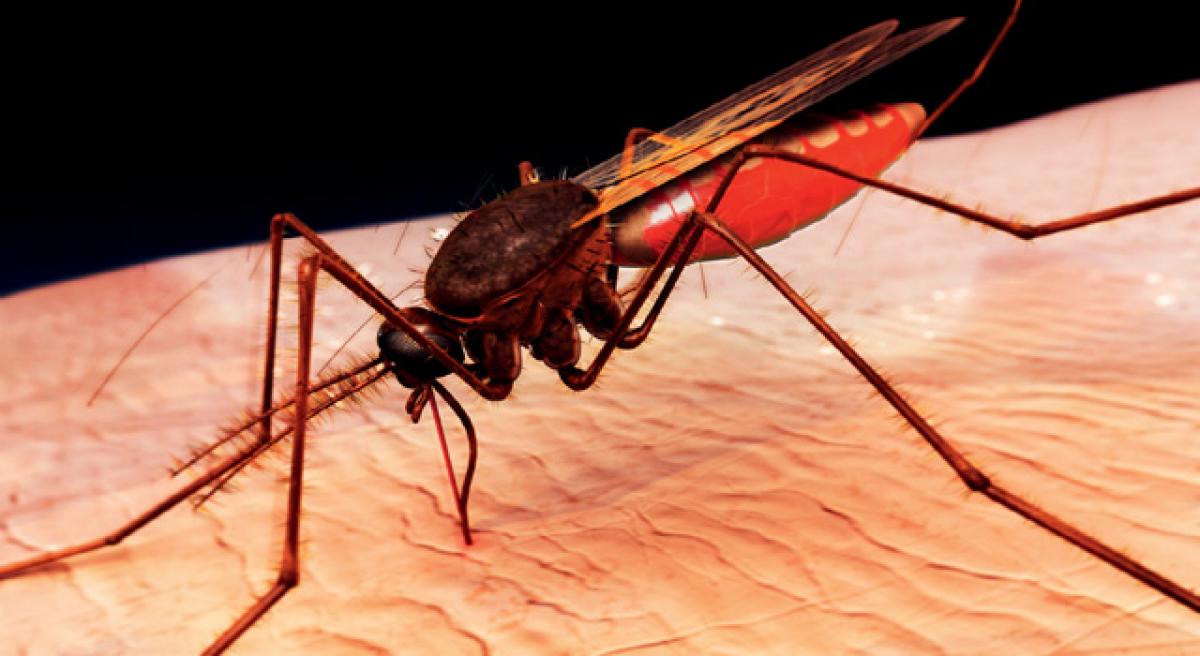Live
- Set up special teams for respiratory cases, hospitals told
- Hyderabad fastest growing city among 6 metros
- MyVoice: Views of our readers 20th November 2024
- Tamil Nadu, Manipur enter final rounds
- Anupama enters 2nd round; Sumeet-Sikki also win
- Stage set for Mahayuti-MVA 'Maha' yudh today
- India beat Japan 2-0, to face China in final
- Space X launches ISRO's communication satellite
- Sensex, Nifty rebound on value buying
- Eatala dares Revanth for debate on Cong 6Gs
Just In
Maternal education fights malaria better than vaccine: Study


Researchers have found that maternal education could be a more potent weapon against childhood malaria than biomedical vaccine. Malaria is a treatable disease that each year affects approximately 200 million people globally.
Researchers have found that maternal education could be a more potent weapon against childhood malaria than biomedical vaccine. Malaria is a treatable disease that each year affects approximately 200 million people globally. The young are particularly vulnerable to the disease with nearly 70 per cent of all deaths occurring in children under the age of five.
While an enormous amount of money is spent each year searching for innovative health solutions to fight the disease, this new research suggests that part of the answer may begin with mothers in the classroom. The study, published in the journal Pathogens and Global Health, found that maternal education can act as a 'social vaccine' for childhood malaria infection.
"Educating the mom has as profound an effect on childhood malaria as hundreds of millions of dollars spent on a vaccine," said senior author Michael Hawkes, Assistant Professor at the University of Alberta in Canada. The researchers tested 647 children in the Democratic Republic of Congo (DRC) between the ages of two months and five years.
The researchers also had the children's parent or guardian fill out a survey related to demographics, socioeconomic status, maternal education, bed net use and recent illness involving fever. The team determined that among the participants, the higher a mother's education, the lesser chance of the child being infected with malaria.
"This was not a small effect. Maternal education had an enormous effect--equivalent to or greater than the leading biomedical vaccine against malaria," Hawkes said. One hundred and twenty three out of the 647 children in the study tested positive for malaria. The prevalence of malaria in children of mothers with no education was 30 per cent.
If mothers had received primary education, that rate dipped to 17 per cent. Mothers who had received education beyond primary school only had a 15 per cent prevalence of malaria in their young children, the study found. "The World Health Organisation is rolling out a new vaccine in countries across Africa that has an efficacy of about 30 per cent," Hawkes pointed out.
"But children whose mothers are educated beyond the primary level have a 53 per cent reduction in their malaria rates," he added. "It doesn't take a lot of education to teach a mom how to take simple precautions to prevent malaria in her child.
All it takes is knowing the importance of using a bed net and knowing the importance of seeking care when your child has a fever," said study co-author Cary Ma, a medical student at University of Alberta.
These are fairly straightforward, simple messages in the context of health and hygiene that can easily be conveyed, usually at an elementary or primary school level, Ma said.

© 2024 Hyderabad Media House Limited/The Hans India. All rights reserved. Powered by hocalwire.com






